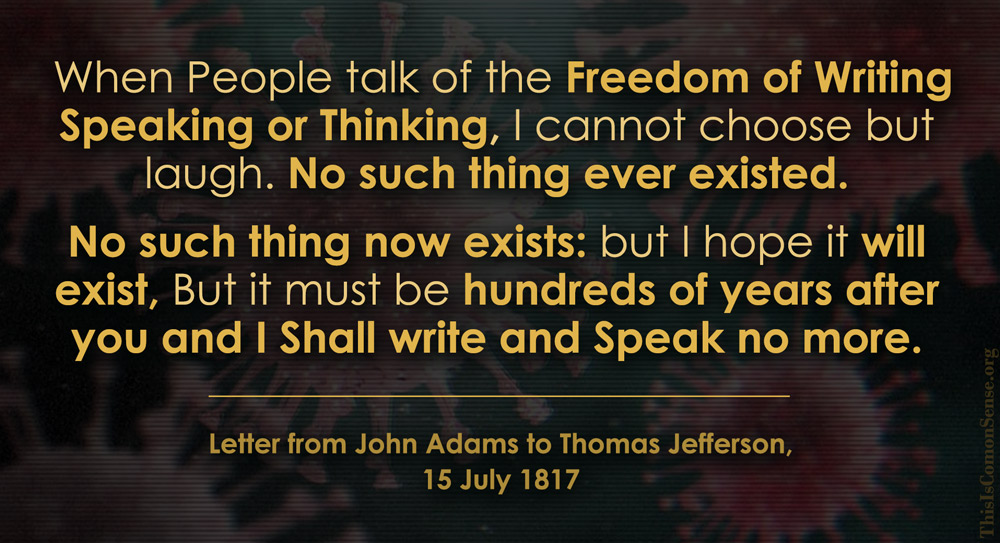Tomorrow is Independence Day in these United States.
But so was yesterday.
It was in the papers:
This day the Continental Congress declared the United Colonies Free and Independent States.
Pennsylvania Evening Post, July 2, 1776.
For it was two days before revising and accepting Thomas Jefferson’s Declaration of Independence that Congress officially declared its independence from King George III.
This Common Sense site has explained this quirk of history before. The Lee Resolution of July 2 declared that
- the colonies should be “free and independent States”
- they were “absolved from all allegiance to the British Crown” and that the connections should be “totally dissolved”
- New “foreign Alliances” should be formed
- And a “plan of confederation be prepared and transmitted to the respective Colonies for their consideration and approbation.”
Congress also commanded that a declaration be drawn up, and it was done quickly, accepted two days later.
The confederation document, on the other hand, took another year to work up, and four years beyond that to adopt.
John Adams, for all his faults as the Second President under the later U.S. Constitution, was a true friend of liberty and regarded the day as historic. “The second day of July, 1776,” he prophesied, writing to his wife on July 3, 1776,
will be the most memorable epoch in the history of America. I am apt to believe that it will be celebrated by succeeding generations as the great anniversary festival. It ought to be commemorated as the day of deliverance, by solemn acts of devotion to God Almighty. It ought to be solemnized with pomp and parade, with shows, games, sports, guns, bells, bonfires, and illuminations, from one end of this continent to the other, from this time forward forever more.
He was off by two days. It was the Fourth that would be celebrated.
Fifty years later he was off by much less: he died on July 4, 1826, uttering “Thomas — Jefferson — still surv —”
Jefferson had died a few hours earlier.
This is Common Sense. I’m Paul Jacob.
Illustration created with PicFinder.ai
See all recent commentary
(simplified and organized)
See recent popular posts



 But give him his due: it was Adams who insisted that Jefferson write the Declaration, and it was indeed its words — especially that of its “mission statement” preamble — that resonate almost universally to this day. And gave birth to the annual festivities.
But give him his due: it was Adams who insisted that Jefferson write the Declaration, and it was indeed its words — especially that of its “mission statement” preamble — that resonate almost universally to this day. And gave birth to the annual festivities.